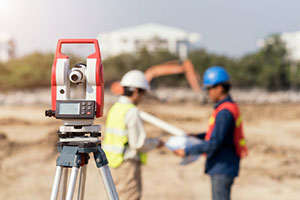Registered Land
 Registered land is land that is part of a system for registering title to land. Generally, this type of land is governed by state law, and title is guaranteed by the Commonwealth. When land has not been registered yet, it is "abstract land." In Massachusetts, about 15-20% of land has been registered, such that the Commonwealth has certified title. If you have concerns related to buying or selling a home on registered land, you should retain a knowledgeable Boston real estate attorney at our firm.
Registered land is land that is part of a system for registering title to land. Generally, this type of land is governed by state law, and title is guaranteed by the Commonwealth. When land has not been registered yet, it is "abstract land." In Massachusetts, about 15-20% of land has been registered, such that the Commonwealth has certified title. If you have concerns related to buying or selling a home on registered land, you should retain a knowledgeable Boston real estate attorney at our firm.
There are two systems of management whereby real estate title records may be kept. These two systems provide different approaches to the same task of keeping track of land within the state. In most cases, when real estate is bought or sold, it is recorded with the Registry of Deeds. However, the registered land system does apply to a percentage of real estate transactions.
Registered land comes with special protections whereby the Commonwealth guarantees your title to land, so if there is a problem with title down the road, the state will reimburse you for your losses. However, the criteria for filing documents associated with registered land are significantly stricter than with recorded land. The recording system relies on the work of attorneys, title insurance companies, and title examiners to make purchasers feel confident about the chain of title and their rights vis-à-vis the property.
When land is registered, a description of it and its encumbrances may be found on the certificate of title, and the certificate and any documents that affect it are filed with the Registry District of the Land Court that has jurisdiction over the part of the county where the land is located.
When trying to figure out whether Massachusetts land is registered, you will need to look at the documents. When land is registered, the legal description refers to a Land Court Plan, and the documents such as easements and mortgages that are filed with it have a Document Number, instead of a book and page number. Sometimes a single piece of property is made up of both non-registered and registered land. In those cases, the documents that affect the property are both recorded with the Registry of Deeds and filed with the Registry District of the Land Court.
There are numerous guidelines that apply when trying to file documents in connection with registered land. For example, if you are filing a document on behalf of a corporation, the Land Court will require you to file recorded corporate documents that are signed by the president or vice president, and either the treasurer or an assistant treasurer. If you do not have these, you will need a corporate vote. If your spouse and you create an LLC to take title to registered land, you will need a good standing certificate issued by the Massachusetts Secretary of State within the past 60 days and signed by the LLC's Manager.
If you are creating a condominium on registered land, you will need to get approval from the Land Court for the condominium master deed and related instruments and plans that create the condominium. When only part of the land is registered, the declarant for the condominium may withdraw the registered land from registration by filing a request with the Land Court. In that case, you will not need approval of the condominium documents and may simply record them with the Registry of Deeds, as you would in other cases.
The Registry District keeps all of the originals that it files. You may not have the original back as a mortgagee; instead, you will need to get a certified copy for your records.
Discuss Your Property Concerns with a Boston AttorneyRegistered land is a more complex form of ownership that involves adjudication. Often, registered land is land that was subject to an ownership or boundary dispute at some point in the past. At Pulgini & Norton, our Boston lawyers can advise you on title and registered land, among other aspects of any real estate transaction. Our firm handles property transactions in Newton, Lowell, and Cambridge, as well as other Massachusetts cities. For a consultation with a property transaction attorney, contact us online or at 781-843-2200.
 Pulgini & Norton, LLP Home
Pulgini & Norton, LLP Home








